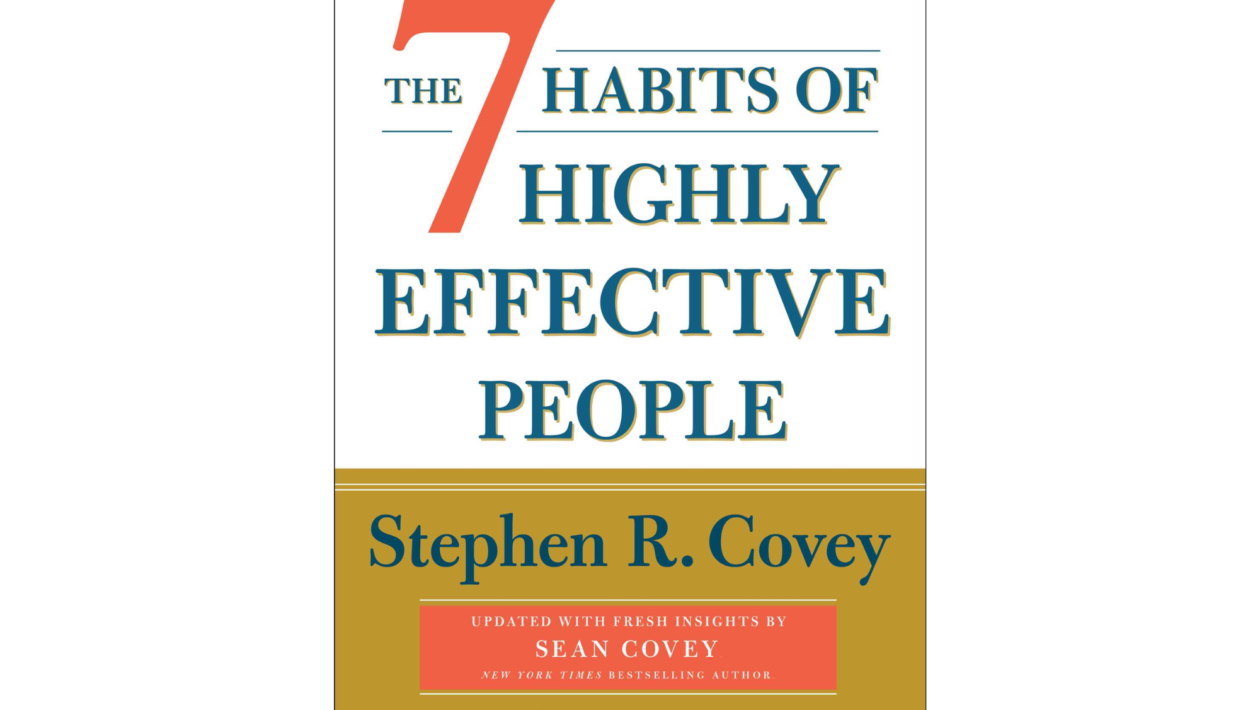By S. R. Covey
Simon & Schuster (2020)
Paperback, 440 pages
Reviewed by LEONARD L. WILSON
The 7 Habits of Highly Effective People is one of the most intriguing and authentically chronicled books in modern times. The author’s commitment to present effective leadership in commercial business or the home is unparalleled. The seven habits are intrinsically profound because they are relational and cross the ethnic divide. This society is diverse, and it necessitates multifarious governance; as Albert Einstein states, “The significant problems we face cannot be solved at the same level of thinking we were at when we created them” (p. 42). The 7 Habits of Highly Effective People highlights the constant battle we fight with ourselves, probably trying to forage or triumph over the self within us, as we form these habits. How do we deal with core principles of life while maintaining that social balance? An examination of the concept of “habit” is a revelatory intersection of knowledge, skill, and desire.
Habits are highly infectious, and the dreadful ones can be deadly. Most people see habits as something negative. Innovative leaders greet them with elation and transform our “dreadful habits” into victories—a paradigm shift. Covey also discusses the seven habits of highly ineffective people, which consistently lead nowhere. Covey’s view is that the most critical habit is the one you are having problems with presently. Visions and dreams are leaders’ eyesight, yet our society has been impacted by blindness. “It’s not what happens to us, but our response to what happens to us that hurts us” (p. 81). It is imperative that we “dream big” and become visionaries, forming good habits that will serve generations to come.
Covey discusses the seven habits of highly effective people: (a) be proactive, (b) begin with the end in mind, (c) put first things first, (d) think win-win, (e) seek first to understand, then to be understood, (f) synergize, and (g) sharpen the saw. These habits may seem strenuous, but they are able to garner success for anyone, anywhere if adhered to within the correct framework. According to the narrative, “the successful person has the habit of doing the things failures don’t like to do” (p. 170). Being effective and productive means spending less time on problems and additional time on opportunities.
Covey is pragmatic, and he discusses common sense flexibilities that envelop and modify changes in people as they interact in their business, home, and society. According to Covey, the seven habits provide a structuring model that aids in thinking and reaching desired goals. As humans, we frequently create false conclusions and struggle with reality; on this, Covey writes, “It’s a principle that all things are created twice, but not all first creations are by conscious design” (p. 114). According to the author, there is no latitude for complication: “The leader is the one who climbs the tallest tree, surveys the entire situation, and yells, ‘Wrong jungle!’” (p. 115).
The book is punctuated with numerous graphics and personal stories, which help the reader avoid the pitfalls of losing essential life lessons and cultivates trust—the ultimate human motivation. Woven within its pages, Covey illustrates the Time Management Matrix, which contributes to one’s mission, values, and high priority goals, aiding in effective management of self or deputation through others. The words of Emerson are worth repeating, “The crime which bankrupts men and nations is turning aside from one’s main purpose to serve a job here and there” (pp. 209–210).
The book also explains the emotional bank account and discusses six major deposits: (a) understanding the individual, (b) attending to the little things, (c) keeping commitments, (d) clarifying expectations, (e) showing personal integrity, and (f) apologizing sincerely when you make a withdrawal. According to Covey, “When we make deposits of unconditional love, when we live the primary laws of love, we encourage others to live the primary laws of life” (p. 229).
The 7 Habits of Highly Effective People is not a book written to transform the world, for the Bible has already done so, but it will inspire and help you to reach the zenith of excellence. It is a suitable read for leaders and followers alike. I offer my highest commendation to this book. It has benefited me tremendously, and it will continue to influence millions on their path to prominence. Thanks for your literary contribution, Dr. Covey.
Leonard Wilson is a master’s in pastoral ministry student at Andrews University in Berrien Springs, Michigan, USA.

